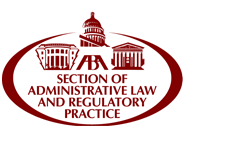Article Title
Green Business and the Importance of Reflexive Law: What Michael Porter Didn't Say
Volume
62
Issue
4
First Page
1063
Abstract
In recent years many firms have begun to pursue “green business,” defined as company actions that enhance both the firm’s environmental performance and its competitiveness. This Article describes the green business phenomenon and offers a new theory as to how environmental law and policy can promote it.
In the 1990’s, Harvard Business School Professor Michael Porter developed the leading view on how regulation can foster green business. Professor Porter argued that traditional regulatory standards, which push companies to adopt specific pollution control technologies, deter green innovation and so are “bad.” In contrast, outcome-based standards, which specify the environmental result but let companies figure out how to get there, encourage such innovation and are “good.” Professor Porter’s regulatory theory holds that, in order to promote green business, we should substitute outcome-based rules for technology-based standards, good regulation for bad. This has become the accepted wisdom in the field.
Yet Professor Porter’s thesis is seriously incomplete. As this Article shows, outcome-based regulations will not work to promote many of the most important green business activities that firms engage in today. Instead, the transaction costs involved in setting an appropriate outcome-based target and in measuring and monitoring the environmental results, make outcome-based standards an ineffective tool for promoting all but a relatively small subset of green business practices. While Professor Porter has made an extremely valuable contribution to the literature on how regulation can promote green business, his theory is deficient.
“Reflexive law” can fill the gap. First propounded by German social theorist Gunther Teubner, reflexive law consists of those laws and policies that promote industry self-regulation. For example, a law that required firms to disclose publicly their toxic emissions, and so encouraged them to reduce this pollution, would qualify as a reflexive law. It would neither push firms to adopt particular control technologies (as traditional, technology-based regulation does) nor mandate specific environmental results (as outcome-based regulation does). Instead, it would use information disclosure to get firms to self-regulate in order to improve their environmental performance. This Article argues that information disclosure rules and other reflexive laws can foster the very types of green business activities that outcome-based regulations are ill-suited to address. Reflexive law completes Professor Porter’s theory.
This Article begins by describing what firms do when they “go green” and what motivates them to undertake this effort. The Article then evaluates whether the market, technology-based standards, and outcome-based regulations can promote green business. It shows that while each of these has an important role to play, each is ultimately insufficient. It argues that reflexive law is an essential addition to these other mechanisms and that the best strategy is one that combines all four approaches while remaining sensitive to the strengths and weaknesses of each.
